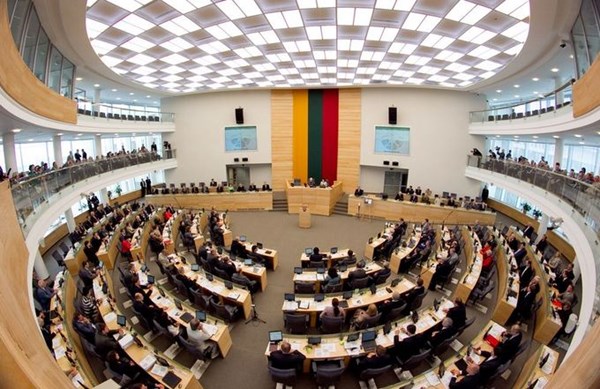Lithuanian parliament adopts ‘Magnitsky Law’
The Lithuanian Parliament (Seimas) has adopted a law similar to the Magnitsky Act adopted in 2012 by Washington authorities to punish Russian officials guilty of the death of Sergei Magnitsky, a Ukrainian-born Russian accountant who stood up to Russian authorities, accusing them of large-scale fraud. The law passed by the Lithuanian Seimas bans the entry of people suspected of corruption, money laundering, and persons accused of crimes against human rights and civic freedoms.
In particular, the Baltic News Service reported that the Lithuanian Seimas adopted amendments to the law on foreign citizens to make it similar to the Magnitsky Act already adopted by the United States, United Kingdom, Canada, and Estonia.
The law envisages that the Ministry of Internal Affairs of the country may ban from entering the country for up to five years individuals who have committed grave or particularly grave crimes against humanity, human rights or freedoms, or have been accused of corruption or money laundering in other states. In addition, the law allows authorities to deny entry to individuals who have been banned from entering other member states of the European Union.
In addition, the law permits not providing notice to banned individuals of the restrictions applied against them, if it can potentially harm the interests, security, defense, and public safety of Lithuania. The decision to include a person on the entry ban list will be made by the Minister of Internal Affairs based on a proposal from the Lithuanian Ministry of Foreign Affairs.
The law was adopted by 91 votes of 141 voting parliamentary members, effective January 2018.
The Russia and Moldova Jackson - Vanik Repeal and Sergei Magnitsky Rule of Law Accountability Act of 2012 (the full name of the law) was named after Sergei Magnitsky, an auditor from the British Hermitage Capital Management investment fund, arrested on charges of creating a tax-dodging scheme for the fund.
The act imposes sanctions against a number of Russian officials who, as Washington authorities concluded, were guilty of Magnitsky’s death. Initially there were 18 names on the list, but the number gradually expanded to over 60 names, among which are the former Chairman of the Investigative Committee of the Russian Prosecutor General’s Office, Alexander Bastrykin, businessman Dmitry Kovtun and Member of the Russian State Duma, Andrey Lugovoy, all of whom the United Kingdom considers guilty of executing a murder of a former officer of the Russian special services, Alexander Litvinenko.
Magnitsky died on November 16, 2009, in a Matrosskaya Tishina pre-trial unit in Moscow. While under an investigation, he accused a number of Russian officials of fraud. Representatives of the British fund, which he had worked for, said that his death was the result of a lack of timely, necessary medical treatment.
Canada adopted its own version of the Magnitsky Act called the Justice for Victims of Corrupt Foreign Officials Act (the bill S-226), with Estonia and the United Kingdom having also adopted similar legislation.
The Russian Ambassador to Lithuania, Alexander Udaltsov, promised retaliation for the unfriendly gesture by the Lithuanian government, saying Russia will ban the entry of a number of Lithuanian citizens.
